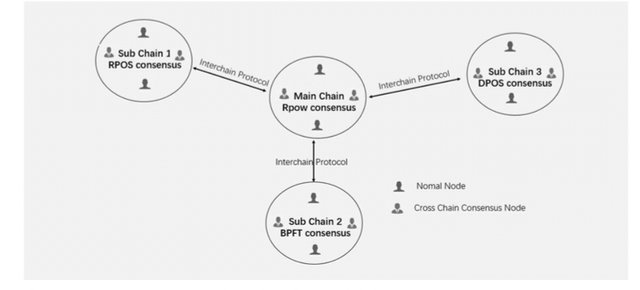Usechain- Its consensus algorithm and its effectiveness.
In my previous article about usechain,i wrote extensively on the use and advantages of usechain, how it solves the problem of low efficiency, and technical difficulties arising from the development of Dapps on various blockchain protocols, and its unique features which include the mirror identity protocol , randomized proof of work, if you missed it you can get information about the article here
Moving on, “Randomized proof of work” am quite certain most of you must have heard the term “proof of stake” which is peculiar to etherum and “proof of work” which is peculiar to bitcoin , but what do they really mean??
Proof of stake - this is a concept in which block transactions are being validated in accordance to how many coins a person( miner) holds, that is your mining capabilities are determined by the amount of tokens you hold, this is a method used to achieve Distributed consensus as well as keep the circulating supply of a token in check,while
Proof of work - this on the other hand is another concept used to determine the next block miner or should i say producer, in order to be the next block producer your computer must be able to solve complex mathematical algorithm within a specific time and this would be feasible via your hashrate, this method is used because it is effective against Distributed denial of services attack (Ddos), the major disadvantage of this concept is that requires lots of energy.
Dpos -which is the short name for delegated proof of stake is a method adopted by Eos token to achieve consensus, like it's name implies “delegated” , here certain stakeholders elected by the community somewhat have a governing power over how consensus is achieved,look at it from a political view, where small token holders vote a particular set of people in to be stakeholders and benefit when those stakeholders are in power, just like democracy and this does not flow with Decentralization which is one of the main attributes of the blockchain technology does not come into play here, so we can say EOS blockchain is not fully decentralized. But one if the major advantages of the EOS blockchain is
the dpos consensus mechanism favours a cooperative rather than competitive relationship as a result of this there is a little probability of forks coming into place, but the major disadvantage here is that it is susceptible to attack due to the low number of witnesses required to confirm transactions
Randomized proof of work
This algorithm used by usechain is proposed based on the DPOS algorithm in the sense that , Here the random selection process is used here , the selection process is completely random in the sense that It is machine generated and depends on certain parameters which are all listed in the technical whitepaper.
Advantages of usechain's RPOW
- Scalability
- Efficiency
- Secured blockchain
Unique features of usechain
- Subchain and crosschain transactions- ability of different blockchains to communicate with each other talkless sending transactions across have been somewhat impossible or should i say far fetched, thanks to usechain being on the forefront of this problem, small micro transactions can now be Broadcasted on a blockchain and confirmed on another blockchain.

- virtual machines- with this concept users and companies have the ability to create their own systems And can be deployed on the usechain blockchain thereby making everything seamlessly, compared to the etherum Virtual machine which is somewhat less efficient, the usechain virtual machine is more effective in various ways as it has a built in vulnerability detection function which is used to detect and report every bug in smart contracts before they are being deployed.
Usechain CEO educational background - Huining Cao - The ceo and also a professor of finance at cheung kong graduate school of business started his university education at University of science and technology, china, where he majored in molecular biology before acquiring his masters in biochemistry at Shanghai biochemistry institute. He later went to obtain his PHD in pathology from yale university all between 1971 and 1995, he currently holds PHD in finance from University of California. You can find more information about him here